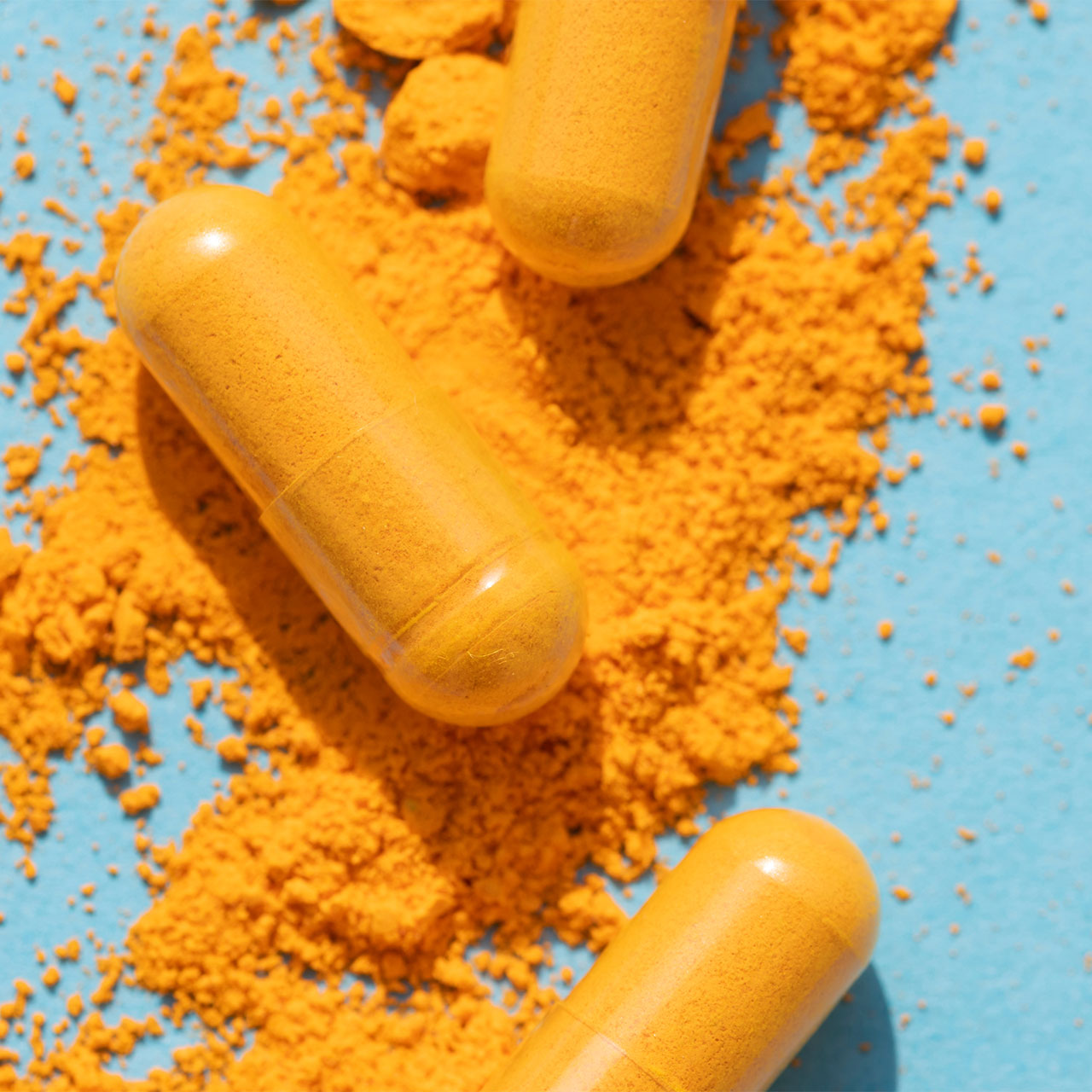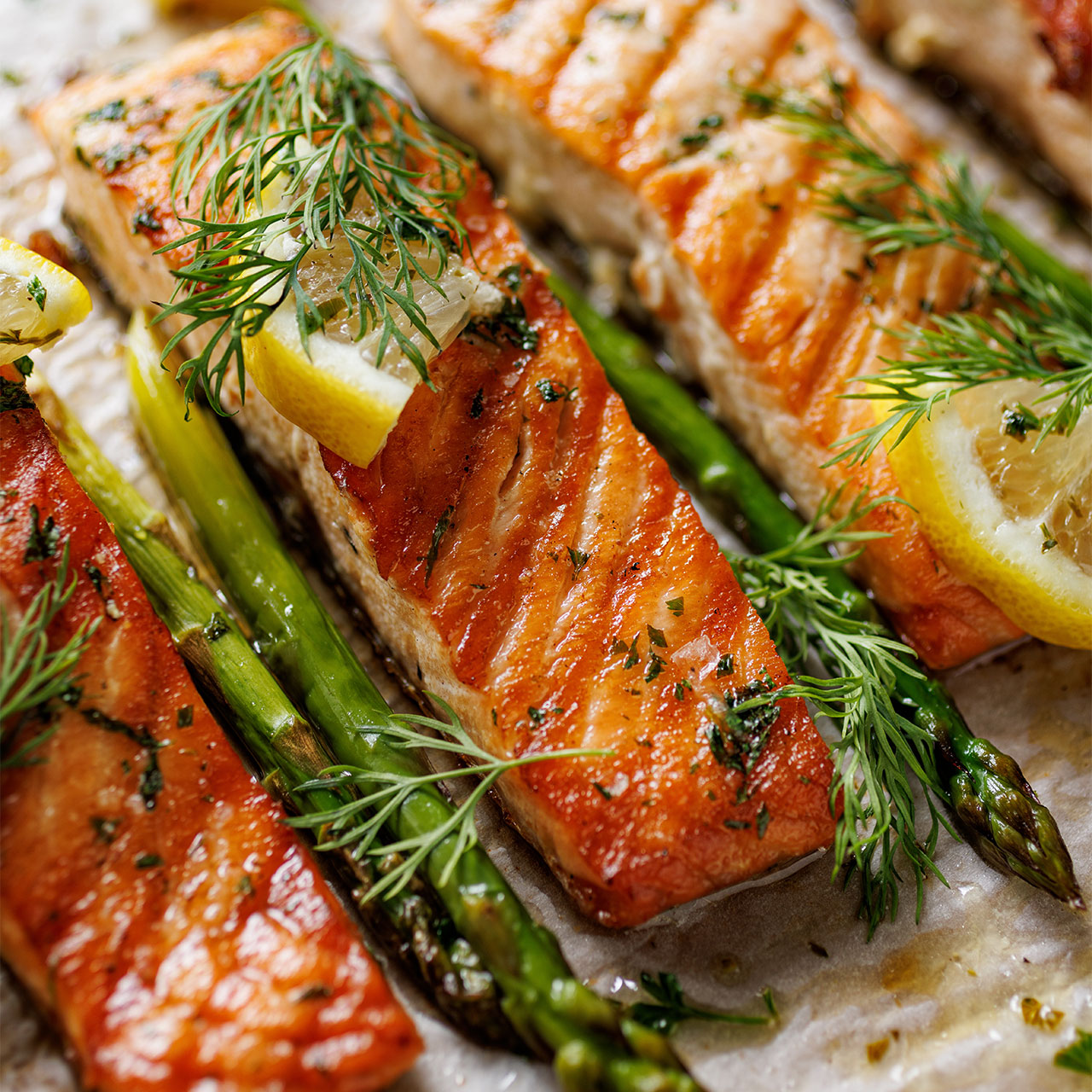Inflammation, while a natural response, can become a persistent issue when it lingers unnecessarily, contributing to various health concerns. The good news is that we have the power to combat inflammation through simple yet impactful steps in our daily lives. Understanding the dynamics of inflammation and adopting lifestyle changes can pave the way for a healthier, more balanced well-being.
We spoke with Mona Rosene, MS, RD and Global Director, Scientific Affairs at ChromaDex, to learn about five steps you can take right now to fight inflammation in your body. Rosene revealed that taking note of your diet, incorporating omega-3s, adding probiotics, managing stress, and supplement with Nicotinamide Riboside are the steps you can take right now to decrease inflammation. Read on to learn more.

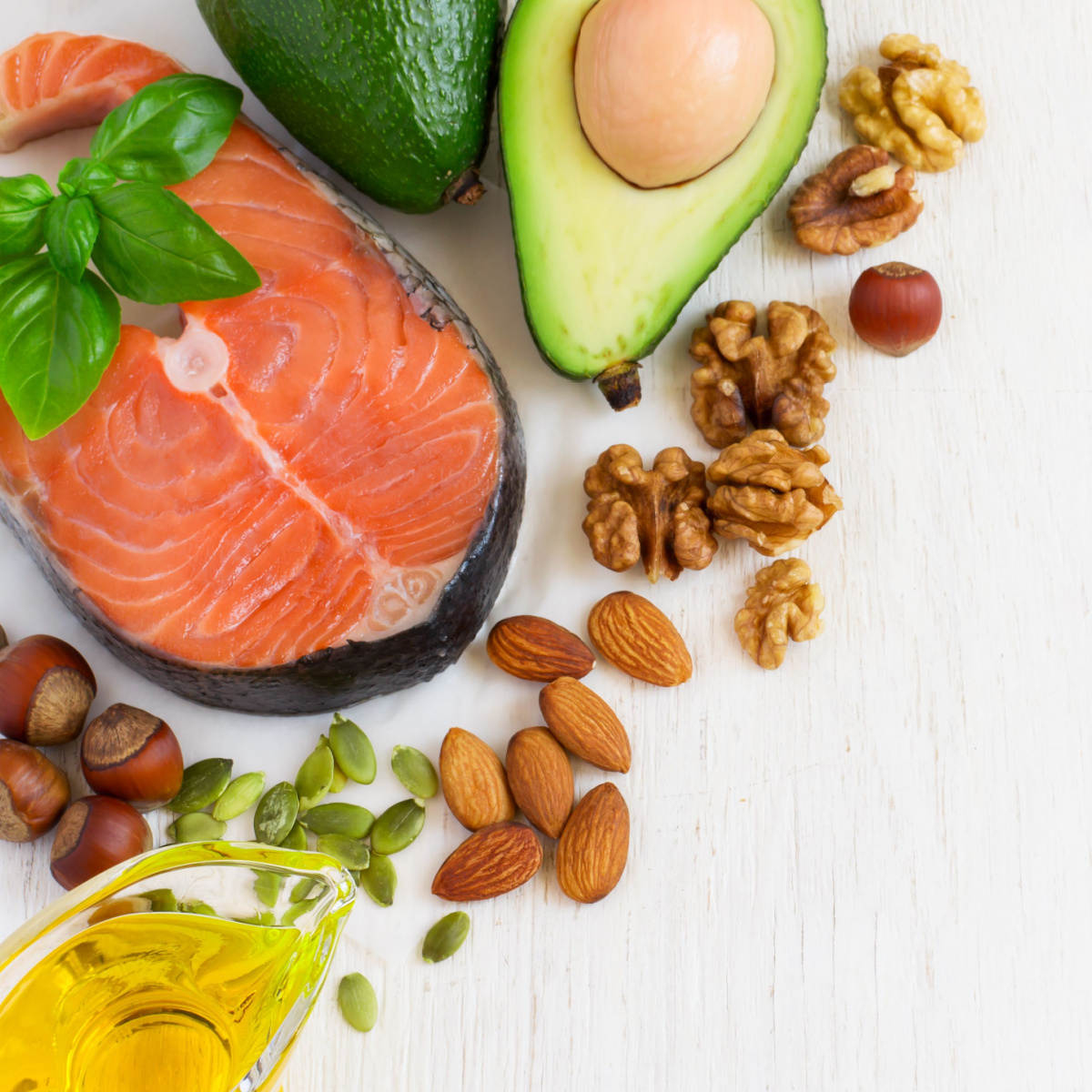
Take Note Of What You're Eating
Rosene says that incorporating a variety of herbs, spices, fruits, and vegetables renowned for their anti-inflammatory attributes, like turmeric, berries, tea, and ginger, supplies the body with vital nutrients and bioactive compounds. These elements actively counteract inflammation by offering a wealth of antioxidants and phytochemicals, working to neutralize free radicals and regulate inflammatory responses.
"Conversely, restricting the intake of inflammatory foods like trans fats, processed foods, and alcohol helps minimize triggers for inflammation. Trans fats and processed foods can contribute to oxidative stress and inflammation, while excessive alcohol consumption may disrupt the balance of inflammatory mediators.
She continues to add that "by adopting a diet rich in anti-inflammatory elements and minimizing pro-inflammatory substances, you can create a supportive nutritional environment that contributes to a healthier and more balanced inflammatory state within the body."
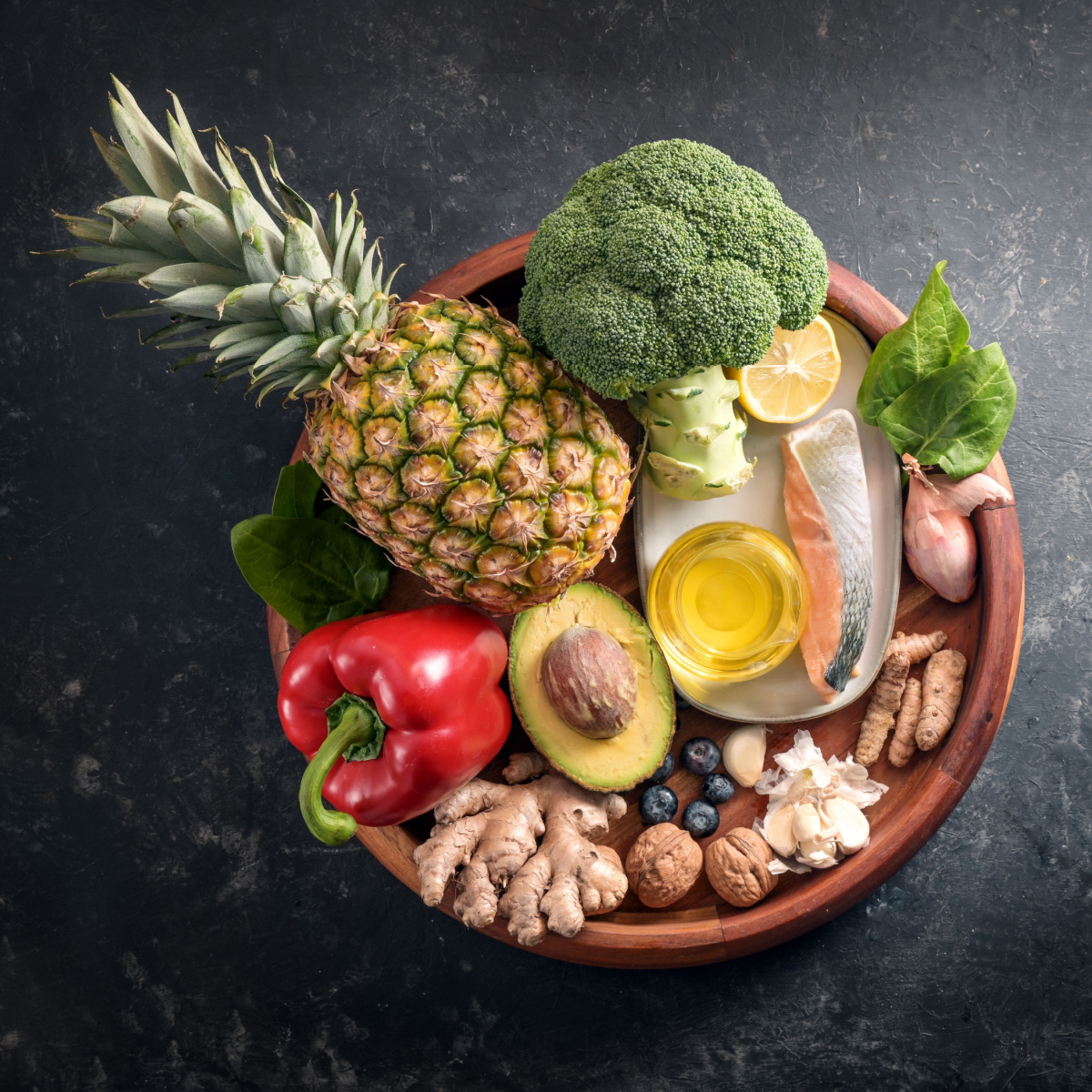
Incorporate More Omega-3s
Omega-3 fatty acids, found abundantly in certain foods like fatty fish (salmon, mackerel, and sardines), flaxseeds, and walnuts, play a crucial role in combating inflammation within the body. Regular consumption of omega-3-rich foods or supplements has been associated with a reduced risk of chronic inflammatory conditions, making them a valuable component of a diet aimed at promoting overall health and wellness.
"Omega-3 fatty acids are a type of polyunsaturated fat that play a crucial role in the body's inflammatory response. They serve as precursors to specialized pro-resolving mediators like resolvins and protectins, actively promoting the resolution of inflammation. Omega-3s also compete with omega-6 fatty acids (which trigger inflammation) and have a positive impact on the body's signaling pathways, reducing the overall inflammatory effect," Rosene says.
She says you can find this "in fatty fish (like salmon and mackerel), flaxseeds, chia seeds, walnuts, and algae supplements and some people also choose to take fish oil or omega-3 supplements."
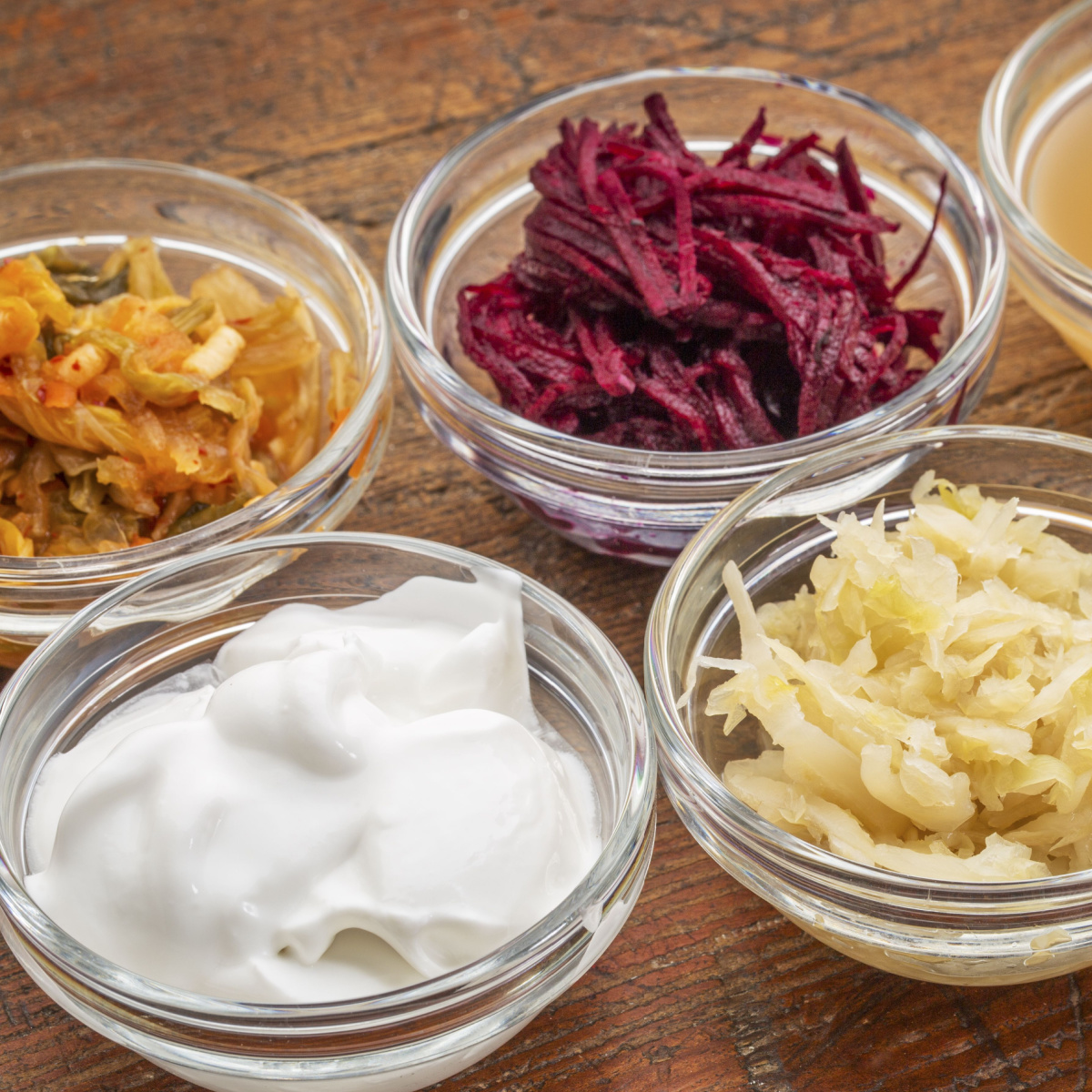
Integrate More Probiotics To Increase Nutrition Absorption
Rosene starts by stating that "although probiotics don't possess direct anti-inflammatory properties, fostering a healthier gut environment enhances the efficiency of food digestion. This, in turn, ensures better nutrient absorption from each meal. Consequently, investing time in incorporating more anti-inflammatory foods into your diet becomes a valuable endeavor, as your well-nourished gut can amplify the benefits of these nutrient-rich choices."
There are a variety of gut-friendly foods you can find in abundance to optimize your gut health. "Building a better gut microbiome should include fermented foods and beverages such as yogurt, kombucha, even pickled items like kimchi and sauerkraut. And, like growing a sourdough starter, you should also be sure to eat foods that feed your good gut bacteria through dietary variation and including foods high in fiber," Rosene states.

Managing Stress
Although it may sound easy, managing stress takes a lot of work. Rosene recommends engaging in stress management techniques, such as mindfulness, deep breathing, and exercise, aids in hormone regulation and promotes a healthy nervous system. Discovering personalized stress management strategies is often a unique journey, encompassing elements like regular physical activity, mindfulness practices, social support, and maintaining a balanced work-life dynamic.
"Recognizing the interconnectedness of stress, inflammation, and overall health underscores the importance of having stress management strategies in your routine. Chronic stress prompts the secretion of stress hormones such as cortisol, and those associated with the body's fight or flight response. These events not only activate inflammatory pathways but also contribute to long-term inflammation," she states.

Supplement With Nicotinamide Riboside (NR)
Supplementing with Nicotinamide Riboside (NR) has gained attention for its potential role in addressing inflammation. Rosene says, "Nicotinamide Riboside (NR), a novel form of vitamin B3 and the most bioavailable precursor to a coenzyme called NAD+ that boosts the metabolic function of your body's cells and supports healthy aging by helping to manage inflammageing (age related increase in pro-inflammatory markers in blood and tissues). In fact, a clinical study published via Cell Reports in August 2023 showed supplementation with NR effectively reduced inflammatory blood markers and enhanced antioxidant expression in immune cells from psoriasis patients."
She further notes how there "is a growing body of evidence suggesting that NR defends against inflammation not only in individuals who are elderly or have inflammation-related disease, but may also provide anti-inflammatory benefits for healthy individuals. There are seven clinical studies on Niagen, a patented form of NR, showing a decrease in inflammatory blood markers."
"NR can be found in food sources like cow's milk and some yeasts, however, research and some nutritional math show that it's impossible to get enough NR from daily diet alone to reach the recommended serving of NR (300mg per day). For example, if milk were your only source of NR, you would need to drink about 87 gallons of conventional milk per day to equate to a 300mg supplement. Luckily, NR can be found in commercially-available supplements," she concludes.








